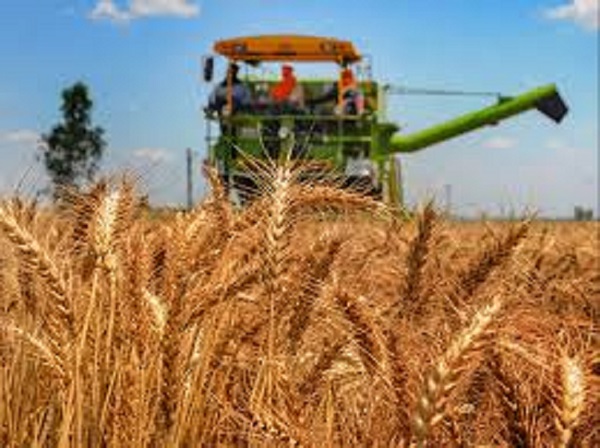Yunusa Sani: The bicycle teacher in northern Nigeria to fight climate change
When he was a young boy, 27-year-old Yunusa Sani just wanted to finish his education, find a good job, buy a house and drive a flashy car. At no time did it occur to him that he would embark on a career of educating the public about the detrimental effects of the climate on the lives of ordinary people.
Mr. Sani, a qualified teacher with a national certificate of education, does not yet own a flashy car, but he has decided to cycle through northern Nigeria to teach local people about climate change. He said his determination is drawn from the devastating effect of climate change in his village.
"It's (climate change) much worse in my village in Ingawa (Katsina). It's obvious but unfortunately most people don't know what it is. Our land has become very unproductive and the number of rainy days per year has decreased,” he said.
It goes beyond that. He lamented the intense heat and the impact on food production in northern Nigeria.
With his bike, Mr Sani has now started a movement, a kind of climate activism, reaching out to “stakeholders” to tell them about the dangers of climate change. He said he chooses to travel with his bicycles as a way to preach what he preaches.
 Garko between Kano and Jigawa states
Garko between Kano and Jigawa statesThe effect of climate change in Nigeria is telling. Extreme weather conditions are more constant, causing floods, erosions, droughts, desertification and land degradation, especially in the semi-arid north of the country.
Climate change has also fueled ethnic clashes and insurgency in the north of the country and parts of central Nigeria. Many analysts point to climate change as the main source of banditry and other forms of insurgency.
A 2018 Global Climate Change Vulnerability Index listed Nigeria as one of the 10 countries most vulnerable to climate change.
When this reporter met Mr. Sani in Katsina in August, he had cycled to Abuja, Kaduna, Jigawa and Kano. He said he covered the route from Abuja to Katsina which is over 600 kilometers in 18 days.

"If it wasn't for the stopover I made on some communities that weren't even part of where I even intended to stop, it wouldn't bother me. wouldn't have taken 18 days. Sometimes I would come to a village and there were already people waiting for me, so I had to stop at those places,” he said.
"I stopped at most of the villages on the Abuja - Kaduna road. I spoke to farmers and rural people...

When he was a young boy, 27-year-old Yunusa Sani just wanted to finish his education, find a good job, buy a house and drive a flashy car. At no time did it occur to him that he would embark on a career of educating the public about the detrimental effects of the climate on the lives of ordinary people.
Mr. Sani, a qualified teacher with a national certificate of education, does not yet own a flashy car, but he has decided to cycle through northern Nigeria to teach local people about climate change. He said his determination is drawn from the devastating effect of climate change in his village.
"It's (climate change) much worse in my village in Ingawa (Katsina). It's obvious but unfortunately most people don't know what it is. Our land has become very unproductive and the number of rainy days per year has decreased,” he said.
It goes beyond that. He lamented the intense heat and the impact on food production in northern Nigeria.
With his bike, Mr Sani has now started a movement, a kind of climate activism, reaching out to “stakeholders” to tell them about the dangers of climate change. He said he chooses to travel with his bicycles as a way to preach what he preaches.
 Garko between Kano and Jigawa states
Garko between Kano and Jigawa statesThe effect of climate change in Nigeria is telling. Extreme weather conditions are more constant, causing floods, erosions, droughts, desertification and land degradation, especially in the semi-arid north of the country.
Climate change has also fueled ethnic clashes and insurgency in the north of the country and parts of central Nigeria. Many analysts point to climate change as the main source of banditry and other forms of insurgency.
A 2018 Global Climate Change Vulnerability Index listed Nigeria as one of the 10 countries most vulnerable to climate change.
When this reporter met Mr. Sani in Katsina in August, he had cycled to Abuja, Kaduna, Jigawa and Kano. He said he covered the route from Abuja to Katsina which is over 600 kilometers in 18 days.

"If it wasn't for the stopover I made on some communities that weren't even part of where I even intended to stop, it wouldn't bother me. wouldn't have taken 18 days. Sometimes I would come to a village and there were already people waiting for me, so I had to stop at those places,” he said.
"I stopped at most of the villages on the Abuja - Kaduna road. I spoke to farmers and rural people...
What's Your Reaction?






















